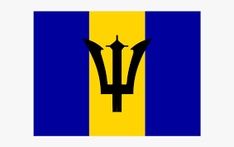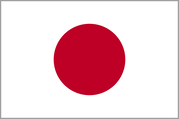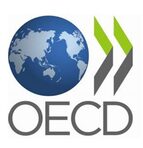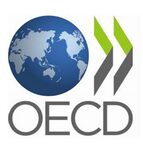|
Thailand has deposited its instrument of ratification for the Multilateral Convention to Implement Tax Treaty Related Measures to Prevent Base Erosion and Profit Shifting (Convention or MLI), which now covers over 1800 bilateral tax treaties.
The Convention will enter into force on 1 July 2022 for Thailand. On 1 March 2022, over 880 treaties concluded among the 71 jurisdictions which have ratified, accepted or approved the Convention had already been modified by the Convention. An additional 940 treaties will be modified once the Convention will have been ratified by all Signatories. See Announcement The Barbados Competent Authority has developed guidelines on the appropriate use of the information contained in the country-by-country (CbC) reports.
The guidance is aimed at ensuring the effective implementation of the CbC reporting regime as per the Income Tax (Country-by-Country Reporting) Act, 2021-27. The guidance discusses, among other things, what constitutes and does not constitute “appropriate use”, the meaning of BEPS-relates risk, and the consequences of non-compliance. It also discusses whether the Authority may use the CbC information in planning a tax audit or not. See Guidance The tax treaty between Japan and Morocco will enter into force on 23 April 2022.
The treaty with generally come into effect from 1 January 2023. The provisions concerning the exchange of information and the assistance in the collection of taxes will have effect from April 23, 2022, without regard to the date on which the taxes are levied or the taxable year to which the taxes relate. See Release On March 22, 2022, the US’ Internal Revenue Service issued a report on the country’s advance pricing agreement (APA) regime.
In 2021, the percentage of renewals executed increased (63 percent of all APAs executed in 2021 versus 59 percent in 2020). The number of pending requests increased slightly relative to December 31, 2020. As of December 31, 2021, almost half of the pending bilateral APA requests involved either Japan or India. Most of the transactions covered in APAs executed in 2021 involve the sale of tangible goods or the provision of services. Fifteen percent of the transactions involve the use of intangible property, which can be among the most challenging transactions in APMA’s inventory. In the majority of APAs, the covered transactions involve numerous business functions and risks. In 2021, the most commonly used transfer pricing method (TPM) for both the sale of tangible property and the use of intangible property continued to be the comparable profits method/transactional net margin method. See Release The OECD has released the latest peer review report assessing the actions taken by jurisdictions to prevent tax treaty shopping and other forms of treaty abuse under Action 6 of the OECD/G20 BEPS Project.
This peer review process, which includes data on tax treaties concluded by each of the 139 jurisdictions that were members of the OECD/G20 Inclusive Framework on BEPS on 31 May 2021, was the first to be carried out under the revised methodology forming the basis of the assessment of the Action 6 minimum standard. The fourth peer review report reveals that members of the OECD/G20 Inclusive Framework on BEPS are respecting their commitment to implement the minimum standard on treaty shopping. It further demonstrates that the BEPS Multilateral Instrument (MLI) has been the tool used by the vast majority of jurisdictions that have begun implementing the BEPS Action 6 minimum standard, and that the MLI has continued to significantly expand the implementation of the minimum standard for the jurisdictions that have ratified it. See Report The Swiss Federal Council is consulting on draft legislation to implement a global minimum tax set by the OECD.
According to the Federal Council, the legislation would be implemented in stages, by establishing a new constitutional norm and transitional provisions. The Federal Council intends to guarantee minimum taxation according to Pillar 2 by introducing a "supplementary tax". The top-up tax will, with regard to large corporate groups, bridge the gap between the effective tax rate and the minimum tax rate of 15%, insofar as the effective tax rate is lower at 15%. The consultation closes on 20 April 2022. See Release The OECD/G20 Inclusive Framework on BEPS has released Commentary on the 15% global minimum tax agreed in October 2021 as part of the two-pillar solution to address the tax challenges arising from digitalisation of the economy.
The Commentary elaborates on the application and operation of the Global Anti-Base Erosion (GloBE) Rules agreed and released in December 2021. The Commentary provides MNEs and tax administrations with detailed and comprehensive technical guidance on the operation and intended outcomes under the rules and clarifies the meaning of certain terms. It also illustrates the application of the rules to various fact patterns. The Commentary is intended to promote a consistent and common interpretation of the GloBE Rules that will facilitate co-ordinated outcomes for both tax administrations and MNE Groups. See Release Members of European Parliament (MEPs) have adopted two reports containing recommendations on reforming withholding taxes and simplifying tax systems.
MEPs adopted recommendations to prevent withholding tax regimes from facilitating tax avoidance, while also reducing barriers for companies and investors who operate cross-border. MEPs have called for legislation to modernize tax systems to reduce tax evasion and avoidance and help SMEs, thereby making tax policy fit for the 21st century. The withholding tax recommendations report was adopted by 625 votes in favor, 38 against and 28 abstentions. The simplification of tax systems report was adopted by 478 votes in favor, 78 against and 129 abstentions. See Release The Government of Seychelles has approved a new business tax rate.
The new rate of business tax for an entity is 15% on the first SRC 1 million of the taxable income; and 25% on the remainder. The change is effective from 1 January 2022. On February 28, 2022, the OECD released the third batch of 2021/2022 updates to the transfer pricing country profiles, reflecting the current transfer pricing legislation and practices of 28 jurisdictions.
The updated country profiles add new information on countries’ legislations and practices regarding the transfer pricing aspects of financial transactions and the application of the Authorized OECD Approach (AOA) on the attribution of profits to permanent establishments. In addition, the country profiles reflect updated information on a number of transfer pricing aspects such as methods, comparability, intra-group services, cost contribution agreements, transfer pricing documentation and administrative approaches to prevent and resolve disputes. In August and December 2021, the OECD had released the first and second batches of updated transfer pricing country profiles. With this third batch, the profiles for Brazil, Canada, Chile, China, Croatia, Dominican Republic, Estonia, Finland, Greece, Hungary, Israel, Korea, Liechtenstein, Lithuania, Luxembourg, Malta, Panama, Portugal, Slovenia, the United Kingdom, Uruguay and the United States have been updated, and 6 new country profiles from OECD/G20 Inclusive Framework on BEPS Members (Honduras, Iceland, Jamaica, Papua New Guinea, Senegal and Ukraine) were added, bringing the total number of countries covered to 91. See Announcement |
Archives
March 2024
|
COMTAX ABC/o Ekonomiforetaget Baehring Dahl AB
Berga Alle 3 25452 Helsingborg Sweden |
CONTACTTel.: +46 46 590 07 70
E-mail: support(@)comtaxit.com |
INFORMATION |
© COPYRIGHT 1985 - 2024 COMTAX AB. ALL RIGHTS RESERVED.









